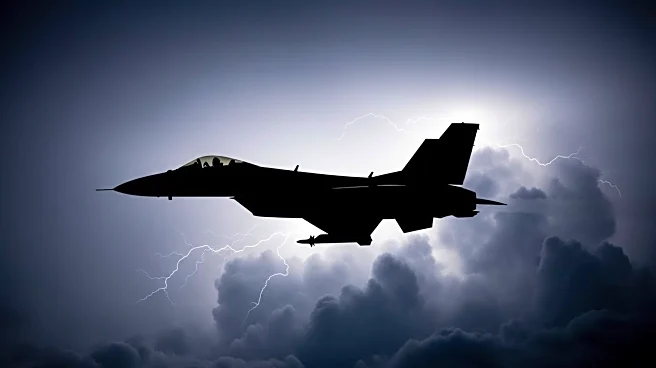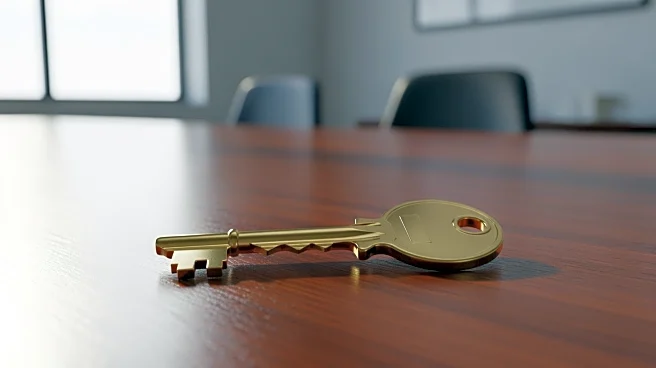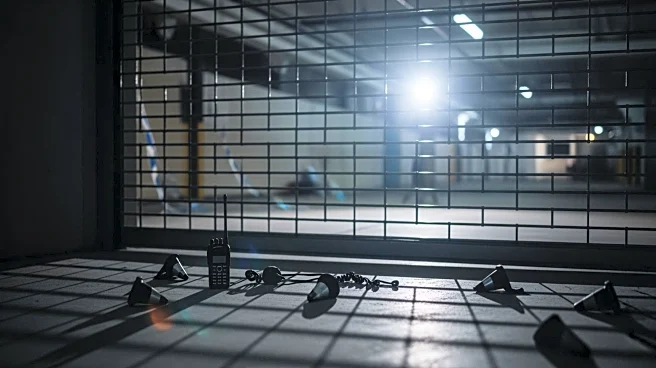What is the story about?
What's Happening?
Leaked U.S. documents have disclosed that several Arab states maintained secret military and intelligence cooperation with Israel during the Gaza conflict, despite publicly condemning Israel. The Washington Post reported that Saudi Arabia, Egypt, Jordan, the United Arab Emirates, Bahrain, and Qatar participated in a classified regional defense framework known as the 'Regional Security Construct.' This initiative, coordinated by U.S. Central Command (CENTCOM), aimed to counter Iran's regional influence and strengthen military ties with Israel. The cooperation involved information-sharing, joint exercises, and operational coordination, with meetings classified as confidential and strict orders banning media contact. The network organized regional security summits and training exercises attended by senior officers from Israel, Arab states, and the U.S. military.
Why It's Important?
The revelation of secret cooperation between Israel and Arab states highlights the complex geopolitical dynamics in the Middle East. While publicly denouncing Israel, these countries are engaging in strategic alliances to counter Iran's influence, reflecting a pragmatic approach to regional security. This cooperation underscores the reliance of Arab states on U.S. security guarantees and their cautious engagement with Israel. The initiative also aligns with U.S. efforts to build on the Abraham Accords and advance security normalization between Israel and the Arab world. The leaked documents suggest a shift in regional alliances, with potential implications for future diplomatic and military strategies.
What's Next?
The leaked documents indicate plans for a 'Middle East Cyber Center' and a regional 'Information Fusion Center' to facilitate real-time data-sharing and digital defense training. These developments could further integrate Israeli and Arab military capabilities, enhancing regional security cooperation. However, tensions within the group, such as the recent Israeli airstrike in Doha, may challenge the stability of these alliances. The U.S. may continue to play a mediating role, as evidenced by President Trump's intervention following the Doha strike. Future diplomatic efforts may focus on balancing public rhetoric with private cooperation to maintain regional stability.
Beyond the Headlines
The secret cooperation raises ethical and political questions about transparency and accountability in international relations. The discrepancy between public condemnation and private collaboration may affect the credibility of Arab governments domestically and internationally. Additionally, the focus on countering Iran's influence could exacerbate regional tensions, potentially impacting civilian populations and humanitarian efforts. The initiative's emphasis on military solutions may overshadow diplomatic avenues for conflict resolution, highlighting the need for comprehensive strategies that address underlying political and social issues.















